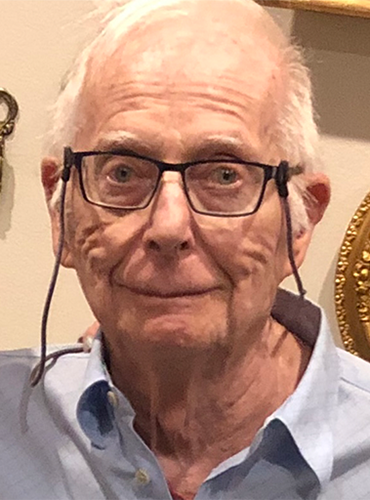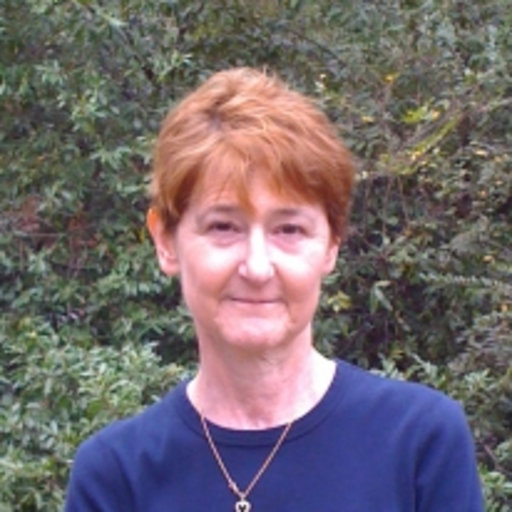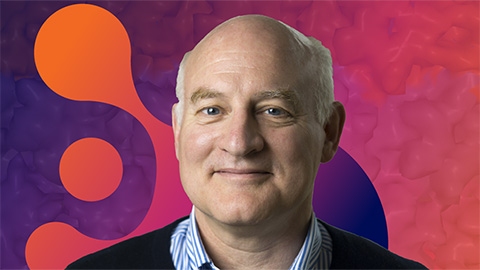Remembering Kanfer and Barry
In memoriam: Julian Kanfer
Julian Norman Kanfer, one of the first researchers to study the link between amyloid ß protein and Alzheimer’s disease, and a member of the American Society for Biochemistry and Molecular Biology for more than 50 years, died Dec. 23 in Dallas. He was 90.

A first -generation American, Kanfer was born in Brooklyn, New York, on May 23, 1930. He served in the Korean War as a medic, then attended Brooklyn College. He earned his Ph.D. in biochemistry at George Washington University in Washington, D.C. and did postdoctoral work in Boston and at Duke University.
In the early 1960s, Kanfer was part of a team that pioneered neuroscience research at the National Institutes of Health. He was head of biochemistry at the Eunice Kennedy Center from 1969 to 1975, then became the chair of the department of biochemistry at the University of Manitoba in Winnipeg.
In the early 1970s, Kanfer’s lab showed that deficiencies of certain hydrolytic enzymes caused fatal accumulations of storage compounds in the brains of children with Gaucher and Niemann–Pick diseases. Later, while studying chemical causes for symptoms of Alzheimer disease, he focused on the amyloid ß protein found prominently in the senile plaques that are the neuropathologic hallmark of the disease. Amyloid ß could overstimulate hydrolytic enzymes (the same ones involved in those childhood storage diseases) to break down the phospholipid building blocks of the brain-cell wall, and Kanfer’s lab hypothesized that the accumulation of amyloid ß and the abnormal enzyme activity it triggered caused or contributed to the neuronal degeneration in Alzheimer’s.
In a 1997 feature article in the Canadian Medical Society Journal, Kanfer said, “To my knowledge, my lab is the only one in the world that has undertaken a study of amyloid ß protein and the role it plays in the phospholipid destruction of brain neurons.”
Kanfer was also known for his work on cancer, Tay Sachs disease and multiple sclerosis. He was a lifelong learner and brilliant scientist, according to an obituary, known for his sharp wit and sense of humor, and penchant for ugly ties.
He is survived by a son and daughter, two stepsons and two stepdaughters, three grandchildren, four stepgrandchildren and his beloved cat and companion, Max.
In memoriam: Bridgette Barry
Bridgette A. Barry, a professor in the chemistry and biochemistry department at the Georgia Institute of Technology, died Jan. 20, after years of battling a severe autoimmune disease. She was 63.
Born March 1, 1957, Barry earned an undergraduate degree in chemistry from Oberlin College in 1978 and a Ph.D. in chemistry from the University of California at Berkeley in 1984. She did postdoctoral training as a McKnight fellow at Michigan State University before starting as an assistant professor at the University of Minnesota, where she received tenure and was promoted to full professor before moving to Georgia Tech in 2003.
Research in the Barry lab combined molecular biophysics, spectroscopy, biochemistry and chemical biology to study how the dynamic protein matrix facilitates enzyme-based catalysis, specifically the role of metal ions in proton-coupled electron transfer reactions fundamental to both solar energy conversion and DNA synthesis. Using a range of high-resolution spectroscopic, biochemical and structural techniques, her team described the reaction coordinate that reveals the motion of a protein in space and time, and tested the design principles they uncovered by building biomimetic models.Barry trained numerous undergraduate, graduate and postgraduate students over the years, who went on to work in both academia and industry. She was named a fellow of the American Chemical Society in 2010 and a fellow of the American Association for the Advancement of Science in 2009. She received the Georgia Tech College of Sciences Faculty Mentoring Award in 2012.
She is survived by her husband of 36 years, Peter Dardi; a brother and sister-in-law, Michael and Jen Barry; and several nieces and nephews.
Enjoy reading ASBMB Today?
Become a member to receive the print edition four times a year and the digital edition monthly.
Learn moreGet the latest from ASBMB Today
Enter your email address, and we’ll send you a weekly email with recent articles, interviews and more.
Latest in People
People highlights or most popular articles

Mydy named Purdue assistant professor
Her lab will focus on protein structure and function, enzyme mechanisms and plant natural product biosynthesis, working to characterize and engineer plant natural products for therapeutic and agricultural applications.

In memoriam: Michael J. Chamberlin
He discovered RNA polymerase and was an ASBMB member for nearly 60 years.

Building the blueprint to block HIV
Wesley Sundquist will present his work on the HIV capsid and revolutionary drug, Lenacapavir, at the ASBMB Annual Meeting, March 7–10, in Maryland.

In memoriam: Alan G. Goodridge
He made pioneering discoveries on lipid metabolism and was an ASBMB member since 1971.

Alrubaye wins research and teaching awards
He was honored at the NACTA 2025 conference for the Educator Award and at the U of A State and National Awards reception for the Faculty Gold Medal.

Designing life’s building blocks with AI
Tanja Kortemme, a professor at the University of California, San Francisco, will discuss her research using computational biology to engineer proteins at the 2026 ASBMB Annual Meeting.
